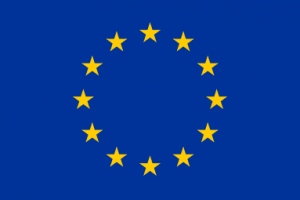FEDORA produced a handy guide that summarises the research work done by the project in its three years.
During this period of time, the project brought together experts and stakeholders from different fields to work collaboratively and explore new approaches and tools to stimulate a regeneration of the science education ecosystem by searching for new languages and
investigating interdisciplinarity and future thinking.
Many burning questions have been explored, such as:
How can we help the students find in education the resources needed to construct empowering visions of their future and develop competencies to navigate a complex, fragile and fast-changing society?
How can we make science education more inter-multi-trans-disciplinary?
What do we need to create new languages tuned with the current times?
What do students and their educational communities feel and think about the future? And how can we contribute, as a project and as a group of committed professionals, to the expansive reach of Open Schooling as a model of putting in practice “new ways” to regenerate education?
This handbook is a comprehensive and quick guide to the FEDORA project’s findings, insights, and recommendations for science educators, policymakers, and anyone interested in science education as a driver for sustainable futures. It presents a range of perspectives through our studies, a set of recommendations and frameworks, inviting anyone who's interested to apply them in various educational contexts.
We hope you find the FEDORA handbook a valuable resource, and we would be happy to hear from you after reading and, hopefully, using this handbook.
The first main action, led by the University of Oxford, generated recommendations for producing policy briefs. We extensively used a Delphi methodology throughout its tasks to assess policy makers’ attitudes and arrived at a general consensus based on their understanding of needs in light of the input about the findings from the first work packages of the project. The recommendations have been further discussed with the RRI community through interviews and research and education institutions representatives in the dissemination activities. The second main action, led by Kaunas University of Technology, concerned the analysis of the RRI frameworks and aims to revise the MoRRI indicators.
Lear more reading Deliverable 5.5 Policymakers’ Views on a Model of Science Education of the Society of Acceleration and Uncertainty – the FEDORA Concept.
This policy brief draws on the first progressive reports elaborated during the first half of the project by WP1, WP2 and WP3. They inform about the preliminary approach to address the alignment of science teaching/learning in formal contexts, the exploration of new languages, narratives and arts and the futurisation of science education.
The recommendations are divided into three types: Institutional, Teaching & Learning and Curriculum recommendations. These findings will be revised on the basis of the results of the Delphi study.
The key points of each recommendation are the following:
Institutional: To foster interdisciplinarity, institutions should consider:
Teaching & Learning: To enhance and support schools and teachers to explore new collaborations with artists and creative professionals, teaching and learning practices should capitalise on:
Curriculum recommendations.
To enhance curriculum content, national curricula should provide opportunities for integrating futures-thinking in school subjects and programs by:
You can download the document with a detailed description of each key point here.
